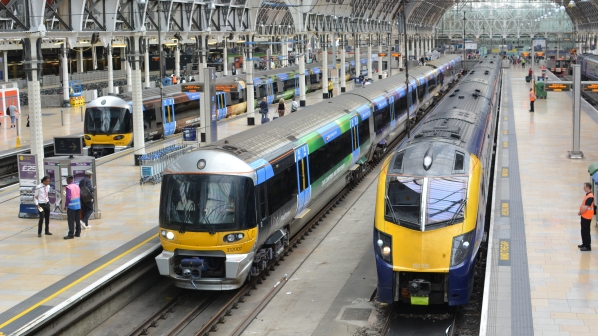The Rail Delivery Group (RDG), which represents the rail industry, says the change presents a significant challenge and hundreds of rail planners and engineers have been working to implement these improvements effectively.
Hundreds of services were cut in May 2018 after major disruption to train services on the Northern and Thameslink networks following the introduction of a new timetable on May 20 2018. A review by the transport regulator the Office of Rail and Road (ORR) found systemic failings in infrastructure manager Network Rail’s (NR) general management of timetable changes.
ORR required NR to take four immediate actions to improve services for passengers, including agreeing timetable changes 12 weeks in advance and strengthening timetabling capability and resources.
RDG says that following the highly-disruptive timetable change, a cross-industry task force had carefully examined the industry’s preparedness across the country and new services were only being introduced where there is high confidence that the necessary infrastructure, staffing plans and new trains will be ready.
Britain’s timetables are changed twice annually in May and December to reflect seasonal variations and enable the introduction of new services.
“As part of our long-term plan to deliver a step-change in rail services, thousands of extra trains and new carriages are coming on track in the coming years, making journeys better and boosting the economy,” says RDG chief executive, Mr Paul Plummer.
“However, improving the railway for tomorrow cannot come at the expense of running a reliable railway today. The scale of our ambition to improve means that this is a significant challenge and while there may be some teething problems, train operators and NR have worked together to carefully assess where new services can be introduced without impacting reliability.
“Many parts of the country are set to benefit this summer from a better service, but where introducing improvements puts reliability at risk, we are rightly taking a more cautious approach.”
Timetable improvements
CrossCountry: Extra weekend trains between Exeter and Bristol and Exeter and Birmingham. 4 trains per hour (tph) to 5tph on Saturdays and 2tph to 3tph on Sundays.
c2c: Additional fast trains from Southend to central London taking frequencies from 4tph to 5tph
South Western Railway:
Morning Peak
- 2 additional Reading - London Waterloo services
- 1 additional Ascot - Reading service
- 1 additional Windsor - London Waterloo, and
- 1 additional Hounslow - London Waterloo
Evening Peak
- 2 additional London Waterloo - Farham (via Ascot) services
- 1 additional London Waterloo - Windsor service
- 2 additional Reading - Ascot services
Other
- 2 additional fast Portsmouth - London Waterloo services in the morning peak and an additional evening peak service to Guildford/Haslemere
- new half-hourly service between Farnham and Guildford
- extra later evening services from London Waterloo to Salisbury and Waterloo to Portsmouth
- a new Salisbury - Basingstoke - Reading Sunday service
- on the south coast, there will be additional services between Weymouth/Poole/Southampton and London Waterloo during peak times, and
- extra weekday and weekend services from Yeovil - London Waterloo calling at Castle Cary, Bruton and Frome.
Govia Thameslink Railway: An additional train each hour will run direct between Brighton and Cambridge, with two direct trains per hour now running each way. This will add 36 extra peak coaches with around 2000 extra seats from these cities into London.
Greater Anglia: Four Norwich in 90 minutes/Ipswich in 60 minutes services.
Scotrail: Additional Sunday services between Glasgow Queen Street, Fort William and Mallaig. Faster journeys between Edinburgh, Glasgow, Stirling, Dunblane and Alloa.
Southeastern: Faster journeys on the Maidstone East line.
West Midlands Railway and London Northwestern Railway: More direct services from local stations to London, the West Midlands and the North West. More early, late and weekend services.
Chiltern Railways: Joining two existing services together to create a direct service between London and Stratford-upon-Avon, doubling the number of weekday services.
Northern: On top of 2000 extra services per week having been added since 2017:
- Direct Chester - Leeds services
- Faster services between Middlesbrough and Newcastle
- Direct services between Hull, Scarborough and Whitby.
Great Western Railway: Extra morning and evening London Paddington - Cheltenham services. Extra weekday services between Exeter, Plymouth and Penzance, increasing Cornish mainline frequency to every 30 minutes during core hours.
Transport for Wales: New hourly services between Liverpool Lime Street and Chester via Runcorn, with peak time extensions to Wrexham General.
TfL Rail: Additional suburban services out of London Liverpool Street and London Paddington stations.

